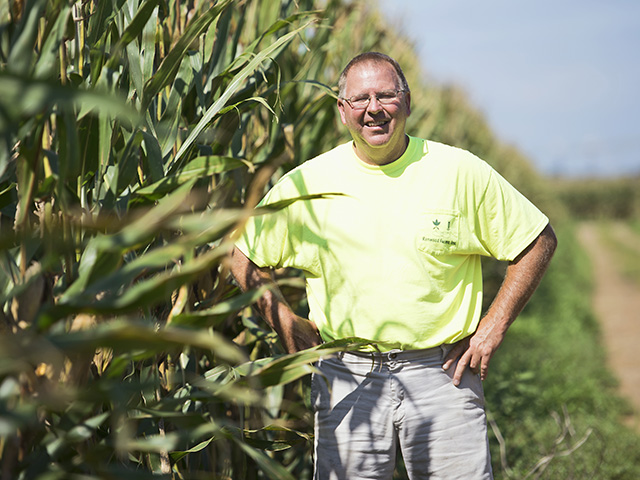Know Your Corn Numbers
Conquer Your Corn Costs - Know Your Corn Numbers
David Hula listens to his ears. The Charles City, Virginia, farmer and corn yield world-record holder says taking time to really know a hybrid pays off in bushels.
The Pioneer 1197YHR variety that produced Hula's 2019 National Corn Growers Association (NCGA) National Corn Yield Contest win of 616 bushels per acre wasn't the newest hybrid in the seed catalog. It debuted in 2014 and was fully commercialized in 2015.
"There are still farmers who ask me for the secret formula or magic mixture they can dump in the sprayer to increase yields. There is no silver bullet," he says.
Putting hybrids in many different growing environments under a variety of management schemes so they reveal their secrets is the secret, Hula insists.
BEHIND THE EARS
For his winning entry, Hula chose to plant the YHR trait package for aboveground pests because he doesn't mind planting a separate 5% refuge. "That way I know every seed in the remainder of the field is covered with the traits I need," he says.
P[L1] D[0x0] M[300x250] OOP[F] ADUNIT[] T[]
The first year, he planted a small acreage of Pioneer 1197 to see how it would perform under routine management. The second year, he began putting it across many different no-till dryland and irrigated management scenarios.
"We quickly found that it shined under intensive management and under water," Hula says. "It likes good, fertile soils. It is not a hybrid to put on marginal ground or stress ground."
A 111-day hybrid, it flowers like it is a 112-day, which makes Hula twitch slightly. "I would prefer that 1197 flower like a 108- or 109-day to expand the grain-fill period. Maintaining good plant health with fungicides and other inputs is critical -- as is prompt harvest, a black layered ear that is down to 21% (moisture) and a leaf next to the ear that is still green," he says.
FASTER HORSES
Modern breeding techniques have sped up hybrid development, making for more frequent turnover in seed rosters. Neal Hoss, Pioneer corn product manager at Corteva Agriscience, says Pioneer hybrids typically have a five- to six-year life span.
"We do have products in our lineup more than a decade old. They generally have a specific need they are meeting," he says.
The class advanced in 2020 will have more yield potential than those in 2019 because of shear genetic gain, Hoss says. "But, the art to this is that as growers and sales reps get more experienced with a product, it does allow them to find specific management practices that products respond best to, and they are able to extract more yield and better performance," he adds.
Mladen Radoev, Bayer corn germplasm and deployment manager, pegs average product life cycle within his company's branded portfolio between five to six years, with the majority of the portfolio volume between 1 and 4 years old.
"Within any given year, 5 to 30% of a particular market's sales volume might be represented by new products," he says. The 2019 NCGA winners planting DeKalb used hybrids commercialized between 2006 and 2018. Half of the farmers winning with Channel numbers represented 2018 hybrid introductions.
Hula considers himself a risk manager, and that means not placing all his bets on one hybrid. "We will still plant some 1197, but I'm also very cognizant that at some point, that hybrid is going to be done," he says.
About 72% of his 2,200 acres of corn are dryland and the rest irrigated in 2020. He planted 30 different hybrids this year.
"Some are going to shine when we have that stress event, and others won't. But, I don't know what the weather is going to be like when I plant," he says.
[PF_0920]
(c) Copyright 2020 DTN, LLC. All rights reserved.




